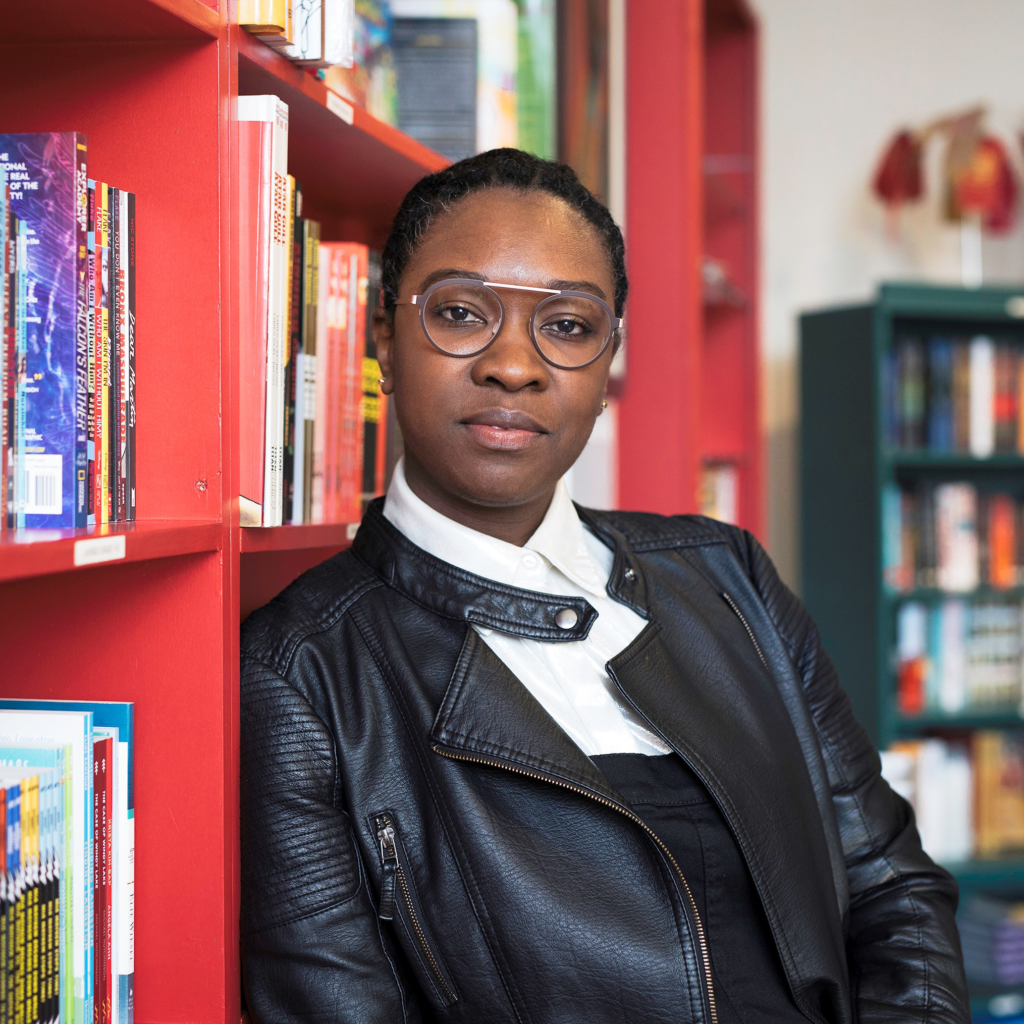Canisia Lubrin (BA ’11) is a writer, critic, professor, poet and editor. Since studying creative writing at York, she has published collections of poetry and received recognition for her work. Her first collection Voodoo Hypothesis was named one of 2017’s best books in Canadian poetry by CBC Books, who also named Lubrin a Black Canadian writer to watch in 2018. Her second collection of poetry, The Dyzgraphxst, won four awards, including the $65K Griffin Poetry Prize. Code Noir is her fiction debut forthcoming from Knopf in 2023.

What passions do you have outside of writing?
My interests vary, and there are all kinds of things that I enjoy in this life. I lean into every discipline. I love film, dance, and visual art, science. I’m just voraciously curious. These various sources of knowing and feeling and seeing only intensify the work I do when I come to the page. I think this form of curiosity is one of the ways to navigate this life and not be entirely consumed by its hardnesses or crushed by the weight of so much that we don’t know. And we don’t understand a lot. We need a sense of awareness and curiosity, to understand the world. And what we have now is the world that fascism and colonialism has made. How do we know this world fully if not by being available to the various sources of its making that we are given? I don’t know if they’re all passions, but my life isn’t compartmentalized. I’d like to think they each lends something to the other.
Did you experience a change in your writing rhythm during the pandemic?
Of course. Anybody who is not adversely affected by the pandemic I might have trouble trusting. To be a part of this much suffering, death, grief, loss and other forms of trouble and terribleness isn’t something you choose not to be affected by, I don’t think. What we do as writers is be attentive to the world. And if we’re doing our job, the world should find a true measure on the page. In the beginning of the pandemic, my concentration was absolutely battered. I couldn’t do much reading, and writing didn’t happen. Someone would send me a request for a poem or other writings, and maybe, by some miracle, I was able to write. But later on, once a certain adjustment was made psychologically and physically, I came back to reading and writing abundantly. It’s hard to look at the world and not be influenced by what’s there.
What materials or pieces have inspired you over the years, and how has that changed?
I have trouble with the word inspire. It’s curiosity that does it for me. I think inspiration tends to have this suggestion of magic attached to it. What happens more accurately is really looking at the world without rigidity. Things can certainly change from one project to the next, but I write in a certain tradition – the Black diasporic tradition, and the tradition of Black art; certainly, what we call Black history, which is really everybody’s history. The Atlantic Slave trade irrevocably altered the world. The things that I find myself drawn to are in that contemporary nexus of history and Black art. That’s what’s important to me. And I think that’s what every writer does. They write about what’s important to them. I have teachers and guides: Dionne Brand, Kamau Brathwaite, Toni Morrison, Christina Sharpe, Walcott early on, and others. My peers travel close: Nicole Sealey, Safiya Sinclair, Vladimir Lucien, David Chariandy, for example. That root system has not really changed, but it takes on different forms. It’s not a rigid thing.
How does it feel to get the recognition and awards you have received over the last few years?
It’s kind of bizarre to me. I certainly didn’t expect all of what has happened. I knew I had written a substantial book, but that still doesn’t guarantee the kind of outcome I experienced. Because there are many substantial books that are written and don’t get that kind of attention. It has been special to be recognized by my peers and others in this work of literature, and that is a great gift.
It’s enabled me to continue the work that I’m committed to in a more considerable way. The kind of visibility that comes with recognition gives me more opportunities for collaboration, to reach out to people and say, ‘would this be something you’re interested in doing?’ It’s a wonderful thing to happen and I know I’m still processing it.
What was your experience like at York?
I would like salute York University’s creative writing program; that’s where the great flame in me caught an exacting fire. I have such an immense appreciation for professors who were hugely encouraging. I learned a lot in that program.
